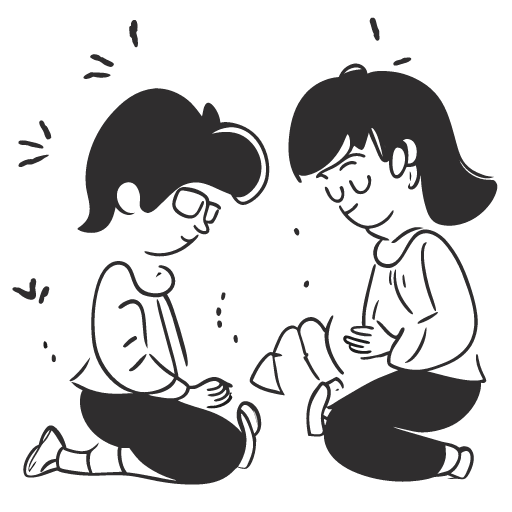Описывая ECN-счет для чайников, стоит сказать, что, это электронная торговая сеть для осуществления сделок на рынке Форекс без посредников, напрямую. Ордера всех трейдеров, которые пользуются такими счетами, находятся в одном стакане цен и исполняются автоматически. На ECN больший упор делается на скорейшее выставление сделок, нежели на технический анализ. Компания Альпари одной из первых предложила клиентам ECN-счета с использованием платформы MetaTrader four https://www.xcritical.com/. Другой плюс работы с ECN-брокером состоит в том, что сделки проводятся мгновенно, при этом отсутствуют реквоты (повторные запросы). Таким образом, ECN-система создает благоприятные условия для проведения скальпинговых и внутридневных стратегий.
Торговля при помощи отложенных ордеров набирает популярность — на их основе создают большинство торговых роботов и алгоритмических скриптов. криптовалютный шлюз И система ECN позволяет выставлять отложенные заявки максимально близко к рыночной цене. Бывают даже случаи, когда можно установить отложенный ордер между ценами Bid и Ask, что у любого другого брокера невозможно даже представить. В итоге трейдерам предоставляется практически безграничные возможности торговли. Каждый брокер предлагает свои условия торговли на ECN счетах. Внимательно изучите такие параметры, как минимальный депозит, комиссия за сделки и размер плавающего спреда.
Торговля через брокера ECN выгодна по многим причинам, некоторые из которых мы уже рассмотрели выше. Прозрачность, справедливость, скорость исполнения и более низкая стоимость каждой сделки – это лишь некоторые преимущества. Когда трейдеры поняли, насколько существенны преимущества ECN по сравнению с устаревшими системами, многие нечистые на руку брокеры решили ухватить этот кусок пирога. Они стали представляться ECN-брокерами, хотя на самом деле таковыми не являлись.
Здесь каждый день оборачивается около 2 триллионов долларов. Вариант привлекает трейдеров своими уникальными характеристиками. Рекомендуем обратить внимание на OnFin — проверенного ECN-брокера с прозрачными условиями и удобным интерфейсом.
На Каком Таймфрейме Лучше Всего Торговать
ECN брокер сам не перекрывает сделки клиентов, а зарабатывает только на комиссии со сделок. Поэтому в ECN счетах отсутствует конфликт интересов — прибыльная торговля на ECN счетах выгодна как трейдеру, так и брокеру. В этом основное отличие ECN от кухонных схем работы, где прибыль трейдера — это убыток дилингового центра. Форекс-брокеры предлагают клиентам несколько типов счетов, начиная с центовых и заканчивая ECN и STP. При беглом знакомстве с торговыми условиями кажется, что особой разницы между ними нет – немного различается спред, скорость исполнения и набор торговых инструментов.
Думаю, вы часто видите в интернете предложения от различных брокеров, предлагающих совершать ECN сделки. Но начинать работу на ECN Форекс без понимания его устройства — пустая трата времени и денег. И именно по этой причине сначала следует изучить принципы работы этой относительно новой системы. Новости и события на рынке могут вызвать резкие колебания цен. ECN счета позволяют трейдерам быстро ecn счет на форекс реагировать на такие изменения и извлекать максимальную прибыль из торговых возможностей. Трейдеры с опытом знают, что каждый пункт спреда может существенно повлиять на прибыльность сделок.

Подобная организация торговли радикально отличается от схемы работы так называемых «кухонных» брокеров. «Кухни» не выводят сделки трейдеров на межбанковский рынок, они остаются внутри компании и сводятся со встречными заявками от других трейдеров. При таком сценарии трейдер финансово заинтересован в том, чтобы сделки клиентов закрывались с прибылью. Если оценивать, что такое ECN счет на Форекс с точки зрения трейдера, то это отличный способ получить реальный выход на валютный рынок.
Данная сеть устраняет посредников в цепочке обмена информацией между трейдером и другими участниками торгов на бирже. По моему скромному мнению, ECN торговля произвела настоящий фурор на рынке Foreign Exchange. Раньше трейдер и представить себе не мог, что роль брокера и других посредников будет полностью устранена.
Список Брокеров Для Ecn Трейдинга
Из-за реквот, проскальзываний результат мог быть в разы хуже, так что снизившиеся расходы на торговлю – не единственное преимущество ECN. Если выбирать тех, кто извлечет максимальную выгоду от перехода на этот тип депозитов, то это будут скальперы. При высокочастотном трейдинге особо важны расходы на спред, за счет снижения разницы между Бидом и Аском повысится доходность скальпирующих роботов. Также ECN выбирают профессионалы, работающие с крупным капиталом.
- Торговля при помощи отложенных ордеров набирает популярность — на их основе создают большинство торговых роботов и алгоритмических скриптов.
- ECN счет – один из счетов на рынке межбанковского обмена валют Forex, позволяющий вести торговлю и получать прибыль.
- И в этой статье я собираюсь рассказать, что такое ECN торговля.
Трейдер при этом думает, что работает на настоящем валютном рынке. Отличие ECN-счетов от обычных в том, что посредник не участвует в операциях. Показатель плавающий и может увеличиваться в периоды высокой волатильности инструмента или когда ликвидность на рынке снижена.

ECN – это электронно-компьютерная сеть, в которой выполняется согласование вашего заказа. Представьте, что ECN – это ликвидный пул заказов на покупку и продажу, которые согласовываются с партнером. Ваш заказ попадает в обширную коллекцию и находит совпадение за миллисекунды.
Проведение торговых операций на финансовых рынках с маржинальными финансовыми инструментами имеет высокий уровень риска, поэтому подходит не всем инвесторам. Вы несёте полную ответственность за принятые торговые решения и результат, полученный в ходе работы. Торговые условия этих ПАММ-счетов, такие же, как у счетов ecn.mt4 и pro.mt4, указанные выше. Минусом является также и слабая функциональность программы для работы на ECN, чего не скажешь о всеми любимой платформе Metatrader. Функционирование такой системы происходит следующим образом.


